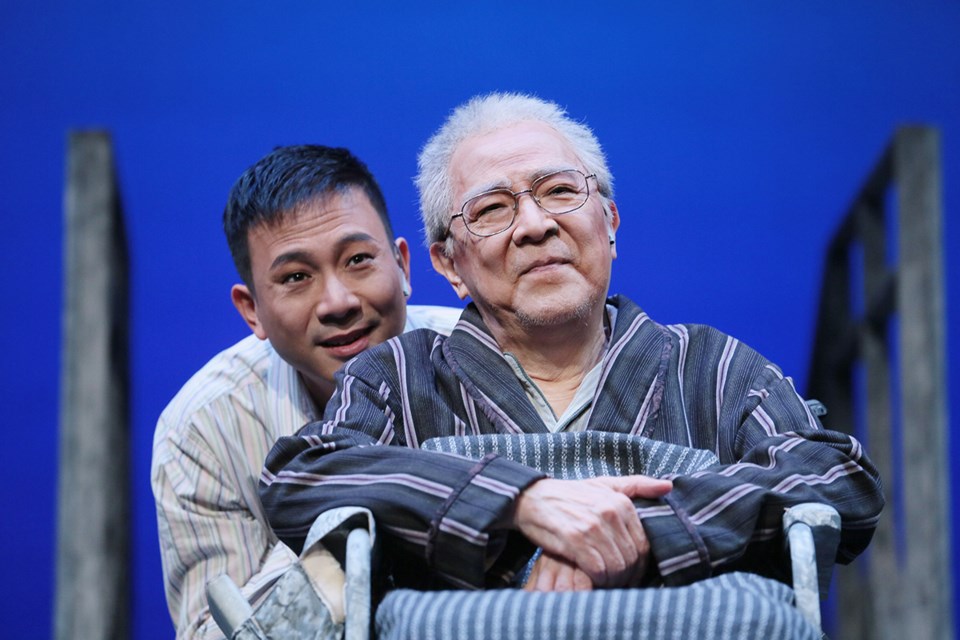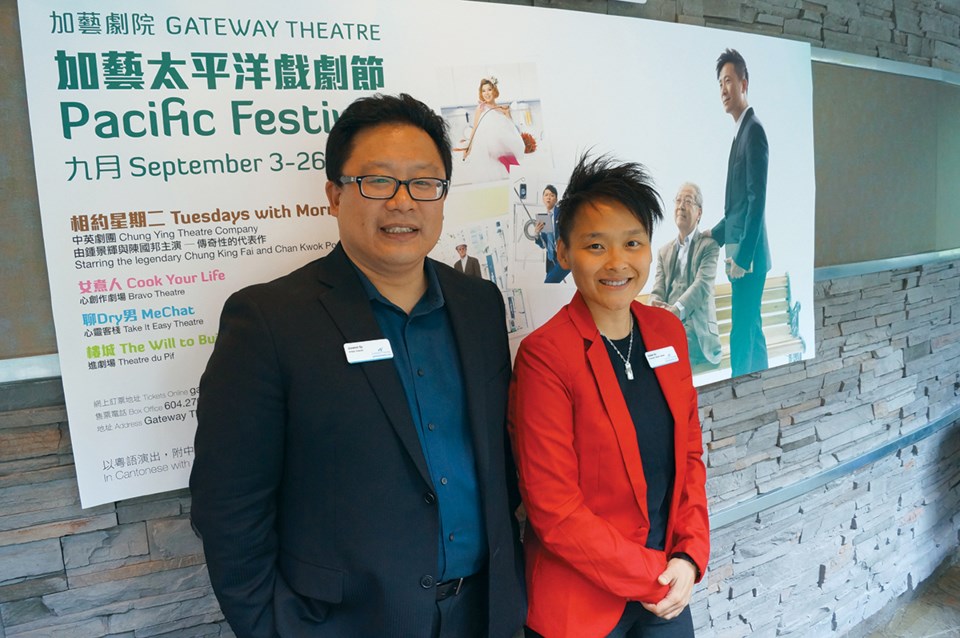After the success of the 2015 Pacific Festival, which concluded in September with three sold-out performances of a Cantonese adaptation of Tuesdays with Morrie, Gateway kicks off their 2015/2016 season with an acclaimed production For the Pleasure of Seeing Her Again from Full Circle: First Nations Performance that features two Aboriginal performers in the lead roles. In anticipation of sharing this First Nations perspective on a Canadian classic with audiences in Richmond, artistic director Jovanni Sy took the opportunity to reflect on the state of cultural diversity in the theatre community.
I have loved theatre all my life. And almost every good thing I have in my life, I owe to my chosen vocation. Theatre has been good to me, and I am privileged to enjoy an artistic leadership role in a community with so many fellow theatre-lovers who have given so much to make the Gateway such a beloved cultural institution. So, as an entrenched theatre “insider,” it feels strange to confess that when I go to most plays in the Lower Mainland, I feel like a gate crasher at a party to which I was not invited.
Those who have been fortunate to travel the world will have probably at one time experienced a strange sense of displacement or estrangement. It might occur in a market in Bombay, a bazaar in Marrakesh, or on the streets of Kowloon. It’s that sudden recognition that absolutely nobody around me looks like me. It’s not a scary moment. But it often underscores the feeling I do not belong here.
This is how I, as a person of colour, have felt about Canadian theatre for most of my life. Like the traveler in Marrakesh, I see few people around me in the audience who look like me. Then I look on stage and I see no one who looks like me. I wonder if I’ve taken a wrong turn and ended up somewhere I don’t belong. I don’t presume to speak for anyone else, but I can’t help but wonder if other non-white theatre lovers feel the same way.

Common sense tells me that we, in Vancouver theatre, cannot reasonably expect the patronage of people whose existence we marginalize or deny outright. Throughout my career, I have been a proponent of making Canadian theatre more inclusive. By “inclusive,” I mean that our stages and audiences should look like the communities we live in. By any objective measure, theatre in the Lower Mainland is anything but inclusive. Half of our population are women. Yet over three quarters of the playwrights produced and directors hired are men. Nearly half of our population belong to visible minorities (a term that will have to change to visible majority shortly). Yet over 90 per cent of the performers we see on professional stages in Metro Vancouver are white.
I believe that this disparity is the single greatest threat to the future of theatre in the Lower Mainland. If we do not address it immediately, professional theatre here will see its audience numbers continue to decline. If we only cater to a sector of our society, we will quickly lose relevance to the whole. I desperately don’t want to see that happen.
Thus, as the leader of a professional theatre, I feel compelled to move Gateway Theatre towards truly reflecting today’s Richmond. I want to invite more people to the party. At the same time, I want to reassure our current guests that they are and will always be welcome here.
During my time here, I’ve programmed beloved classics such as Crazy For You, The Wizard of Oz, and Rodgers and Hammerstein: Out of a Dream. These are plays that are near and dear to me and there will continue to be a time and place for plays like this in the future. Along with them, however, we will feature plays that make our tent a little bigger. The piece on our Main Stage Oct. 8 - 24 is a good example of this. So we’ve taken some baby steps at Gateway towards an inclusive future. Could we have done more in the past three years? Absolutely, yet I feel we’re moving in the right direction.


.png;w=120;h=80;mode=crop)
